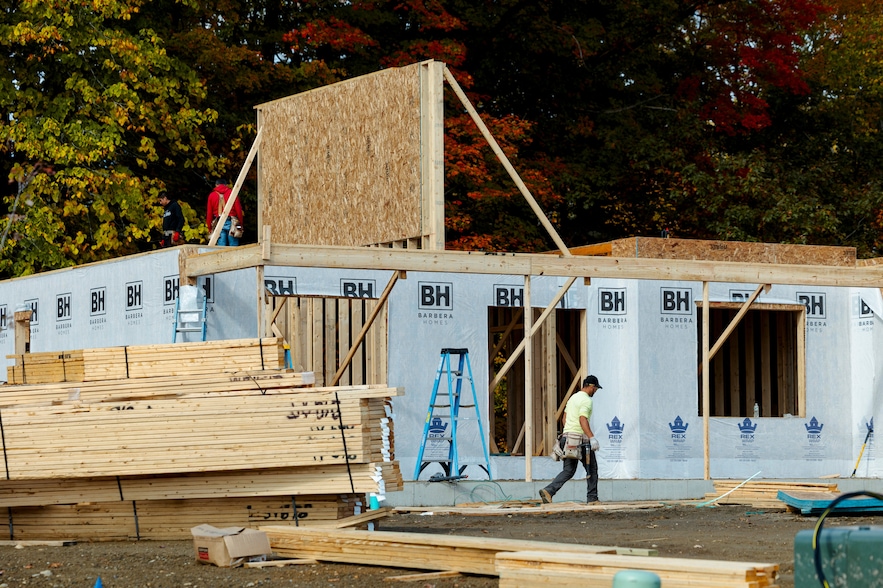A bipartisan immigration-related bill gained traction this week after the National Association of Home Builders endorsed the legislation for offering a potential solution to the industry's labor shortage.
The legislation, dubbed the Dignity Act, would allow workers who had arrived in the United States before 2020 to continue employment, provided they had complied with federal and state laws, passed a criminal background check, paid any back taxes and began to pay income taxes. They would also have to pay restitution.
If those conditions are met, the act would grant seven years of legal status with an employer. While the undocumented immigrant would be barred from citizenship, the status could be renewed after every seven-year term.
“The bill’s approach to addressing this issue pairs robust enforcement measures to curb illegal immigration with a fair and responsible pathway to permanent work authorization for certain undocumented workers,” Lake A. Coulson, the association's chief lobbyist, wrote in an Oct. 8 letter to the sponsors of the legislation, Reps. María Elvira Salazar (R-Fla.) and Veronica Escobar (D-Texas).
The endorsement by the NAHB — representing residential and commercial contractors and business owners across the country — follows the backing of some 50 other national associations, including the American Senior Housing Association, the Tile Roofing Industry Alliance and the National Association of Landscape Professionals.
"The labor crisis in America has reached a tipping point," said Salazar, who represents Florida's 27th district. "From construction to hospitality and agriculture, our economy is feeling the pressure under a broken immigration system. Many industries rely on immigrant labor, and recent immigration enforcement actions have tightened the workforce. More and more people are waking up to that reality."
Burk Hedrick of the Winter Park, Florida-headquartered firm Hedrick Brothers Construction, sees the need for change. As president of development, Hedrick said he needs more carpenters, framers, electricians, plumbers and general contractors on his residential and commercial projects all across the Sunshine State.
"We do every product in the sandbox of construction," Hedrick said. "We need more trained tradespeople."
Labor shortages plague the industry nationwide and present a major cost to both developers and consumers. Delayed projects due to staff shortages cost the country $2.7 billion each year, according to a study by the Home Builders Institute and NAHB published this summer. About one-third of the U.S. construction workforce comprises immigrant workers, the NAHB said.

